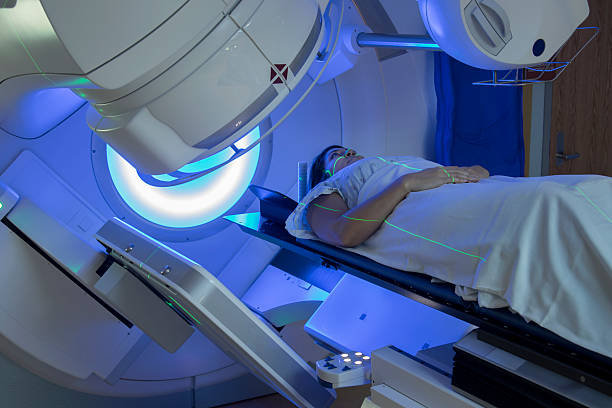Medullary thyroid cancer (MTC) is a rare form of thyroid cancer that arises from the parafollicular or C-cells of the thyroid gland. It accounts for approximately 5-10% of all thyroid cancers and is often associated with a genetic mutation in the RET proto-oncogene.
The management of MTC requires a multidisciplinary approach, with treatment guidelines aimed at optimizing outcomes for patients. In this article, we will provide a comprehensive overview of the current treatment guidelines for MTC, incorporating keywords related to its various aspects.
Diagnosis and Staging
The initial step in managing MTC is establishing a diagnosis and determining the stage of the disease. This typically involves a thorough evaluation of the patient’s clinical history, physical examination, and imaging studies such as ultrasound, computed tomography (CT) scan, and magnetic resonance imaging (MRI).
Genetic testing for RET mutations should also be performed, as it can help confirm the diagnosis and guide treatment decisions. Staging of MTC is typically based on the American Joint Committee on Cancer (AJCC) TNM staging system, which takes into account the size of the tumor, involvement of nearby lymph nodes, and presence of distant metastases.
Surgery
Surgery is the cornerstone of treatment for MTC, and the main goal is to achieve complete resection of the tumor. The extent of surgery depends on the stage of the disease and may include total thyroidectomy (removal of the entire thyroid gland), bilateral central neck dissection (removal of lymph nodes in the central neck region), and lateral neck dissection (removal of lymph nodes in the lateral neck region).
Prophylactic thyroidectomy may also be recommended for patients with RET mutations or a family history of MTC, as it can reduce the risk of developing MTC in the future.
Radiotherapy
Radiotherapy may be considered as an adjuvant treatment for MTC, particularly in cases where the tumor is locally advanced or there is a high risk of recurrence.
External beam radiation therapy (EBRT) is the most commonly used form of radiotherapy for MTC, and it involves delivering high-energy beams of radiation to the tumor site. Radioactive iodine (RAI) therapy, which is commonly used in the treatment of other types of thyroid cancer, is generally not effective in MTC, as C-cells do not take up iodine.
Targeted Therapy
Targeted therapy has emerged as a promising treatment option for MTC, particularly for patients with advanced or metastatic disease. Tyrosine kinase inhibitors (TKIs) such as vandetanib and cabozantinib, which target the RET protein, have shown significant efficacy in clinical trials and have been approved for the treatment of advanced MTC.
Other TKIs, such as lenvatinib and sorafenib, have also shown activity in MTC and may be considered in certain cases.
Chemotherapy
Chemotherapy is generally not considered as a first-line treatment for MTC, as it has limited efficacy in this type of cancer. However, it may be considered in select cases, particularly for patients with advanced or metastatic disease who have failed other treatment options.
Chemotherapeutic agents that have been used in MTC include doxorubicin, cisplatin, and etoposide, but their effectiveness is limited and further research is needed in this area.
Surveillance and Follow-up
After initial treatment, regular surveillance and follow-up are crucial in managing MTC. This may include monitoring of serum calcitonin and carcinoembryonic antigen (CEA) levels, imaging studies such as CT scans or MRI, and clinical evaluation for signs of recurrence or metastasis. Long-term follow
In conclusion, the treatment of medullary thyroid cancer generally involves a multidisciplinary approach and should be tailored to the individual patient’s specific case. Surgery, such as total thyroidectomy, is often the primary treatment, and genetic testing may be done to identify any specific genetic mutations that could impact treatment decisions.
Other treatment options, such as radiation therapy, targeted therapy, and hormone replacement therapy, may also be used depending on the stage and extent of the cancer. Participation in clinical trials may be considered in certain cases.
Regular surveillance and follow-up are essential to monitor treatment response and detect any potential recurrence or spread of the cancer.
It is crucial for patients with medullary thyroid cancer to work closely with a qualified healthcare professional who specializes in thyroid cancer to develop an appropriate treatment plan that takes into consideration the individual patient’s health status, the stage and severity of the cancer, and other relevant factors.
Keeping open communication with the healthcare team and adhering to the recommended treatment plan are key to achieving the best possible outcomes in the management of medullary thyroid cancer.


